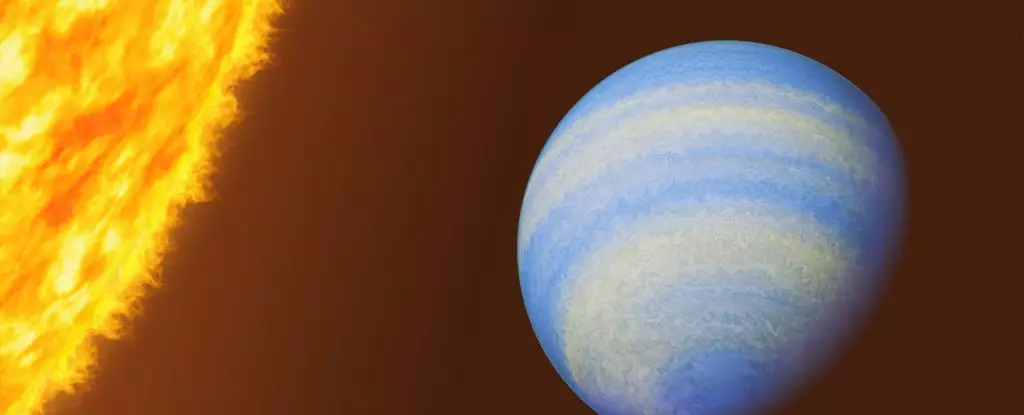Planets in the Milky Way can sometimes offer surprises that are both fascinating and a little gross. The recent discovery of hydrogen sulfide in the atmosphere of the exoplanet HD-189733b, similar to the smell of rotten eggs, has opened up new possibilities for understanding the chemical makeup of worlds beyond our Solar System. With this discovery, scientists are beginning to unravel the mysteries of how sulfur influences planetary formation and evolution in ways that we never imagined before.
The detection of exoplanets has come a long way since the early 1990s, when the first planet outside of our Solar System was identified. Today, researchers have the tools and technology to not only locate these distant worlds but also to study their characteristics in great detail. By analyzing how the light of a host star changes when an exoplanet transits in front of it, astronomers can identify the presence of different molecules in the planet’s atmosphere. This technique has paved the way for groundbreaking discoveries, such as the detection of hydrogen sulfide on HD-189733b.
HD-189733b is an extreme exoplanet, classified as a hot Jupiter due to its close proximity to its host star and its scorching temperatures. Located just 64.5 light-years from Earth, this Jupiter-sized gas giant orbits its star every 2.2 days, experiencing intense heat that reaches thousands of degrees. Despite these extreme conditions, scientists have been able to gather valuable data about the planet’s atmosphere, including the presence of hydrogen sulfide, water, carbon dioxide, and carbon monoxide. These findings provide insights into the chemical composition of hot Jupiters and shed light on their formation mechanisms.
In addition to detecting various molecules in HD-189733b’s atmosphere, researchers have also investigated the planet’s metallicity, which refers to the concentration of elements heavier than hydrogen and helium. Surprisingly, the metallicity of the planet was found to be significantly higher than that of its host star, indicating a unique composition that offers clues about its origin. This discovery highlights the importance of studying planetary metallicity in understanding how different factors influence the formation and evolution of exoplanets.
By studying the chemical composition of HD-189733b and other hot Jupiters, scientists hope to uncover more about the processes that govern planetary formation and migration. The presence of sulfur on these worlds could provide valuable insights into their origins and evolution, hinting at the possibility of migration from distant regions of the galaxy. As researchers continue to explore the mysteries of exoplanets, each new discovery brings us closer to understanding the complex interplay of factors that shape these alien worlds.
The detection of hydrogen sulfide on the exoplanet HD-189733b represents a significant milestone in our quest to explore the chemical diversity of worlds beyond our Solar System. This unexpected finding challenges our preconceptions about the composition of exoplanet atmospheres and opens up new avenues for research into the origins of these distant worlds. As scientists delve deeper into the mysteries of planetary formation and evolution, the stinky revelations of the Milky Way remind us that there is still much to learn about the complexities of the universe.



Leave a Reply